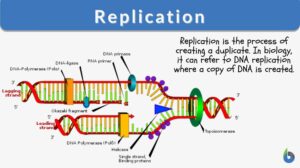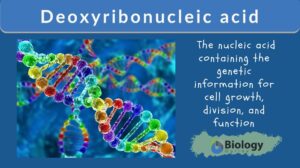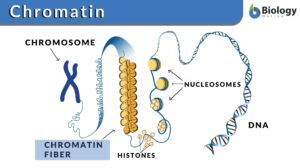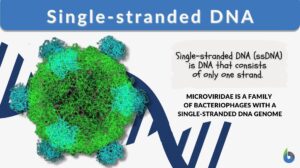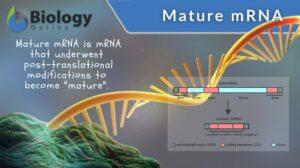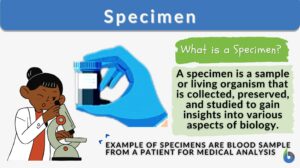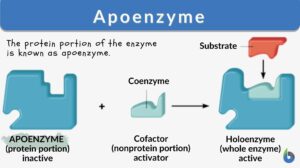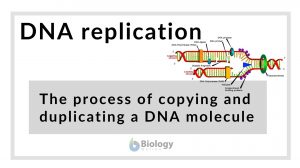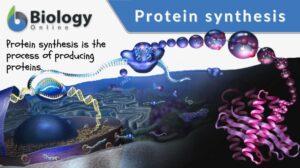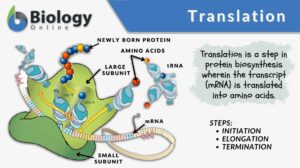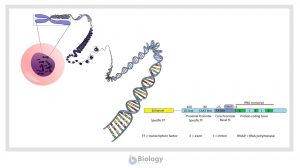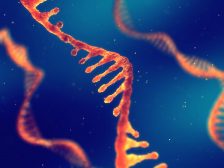Search Results for: dna_polymerase
Replication
Replication, in the general sense, is to create a copy or a duplicate. Thus, in biology, replication is commonly associated... Read More
Deoxyribonucleic acid
Deoxyribonucleic Acid (DNA) Definition A nucleic acid refers to any of the group of complex compounds made up of linear... Read More
Transcription (biology)
In biology, transcription is the process of transcribing or making a copy of the genetic information stored in a DNA strand... Read More
Nucleic acid
Nucleic Acid Definition A nucleic acid refers to any of the group of complex compounds consisting of chains of monomers of... Read More
Single-stranded DNA
What is single-stranded DNA? DNA is the material that living organisms possess that carries their genetic make-up. DNA and... Read More
Mitochondrion
Mitochondrion Definition What are mitochondria? The term “mitochondrion” comes from the two words of the Greek... Read More
DNA polymerase
Definition noun, plural: DNA polymerases (molecular biology) An enzyme assisting in DNA replication Supplement Polymerases... Read More
Genetic Information and Protein Synthesis
Genetic Code Genes are sequences of DNA nucleotides that carry and transmit the information specifying amino acid sequences... Read More
Mitochondrial DNA
Mitochondrial DNA Definition noun plural: mitochondrial DNAs The genetic material in the mitochondrion that carries code... Read More
Ribonucleic acid
Ribonucleic Acid Definition noun (uncountable), ribonucleic acids ri·bo·nu·cle·ic ac·id, raɪboʊnjuːkliːɪk... Read More
Mature mRNA
Mature mRNA Definition Mature mRNA is the completely processed mRNA molecule in the cell of eukaryotes. The mRNA is a type... Read More
DNA polymerase II
Definition noun A DNA polymerase involved in DNA replication in prokaryotes, is encoded by polB gene, and composed of 783... Read More
Precursor mRNA
Definition noun plural: precursor mRNAs An immature or incompletely processed mRNA molecule in eukaryotes that needs to be... Read More
Chloroplast DNA
Definition noun plural: chloroplast DNAs DNA in the chloroplast that carries the code for proteins and RNAs essential to... Read More
DNA polymerase I
Definition noun The first known DNA polymerase, encoded by polA gene, and is involved in DNA replication in... Read More
DNA replication
DNA Replication Definition DNA replication is the process of copying and duplicating a DNA molecule. The process is carried... Read More
Protein synthesis
Protein synthesis is the process of creating protein molecules. In biological systems, it involves amino acid synthesis,... Read More
Translation
Translation, in general, is the conversion of something into another form, such as a word from one language to another. But... Read More
Gene Regulation in Eukaryotes
Reviewed by: Mary Anne Clark, Ph.D. Eukaryotic Gene Structure In prokaryotes the DNA is located in the... Read More
Pribnow box
Pribnow box --> promoter (Science: molecular biology) A region of dNA to which rNA polymerase binds before initiating the... Read More
Eubacteria
Eubacteria are prokaryotic microorganisms consisting of a single cell lacking a nucleus and containing DNA is a single... Read More
Protein Synthesis
If you have jumped straight to this page, you may wish to look at the previous tutorial about DNA, which gives background... Read More
Denaturation
Denaturation Definition In biochemistry, denaturation is defined as a process in which a molecular structure deviates from... Read More
Thermophile
Thermophiles Definition What are thermophiles? Let us first understand the literal meaning of the word ‘thermophile’.... Read More
Messenger ribonucleic acid
Definition noun plural: messenger ribonucleic acids mes•sen•ger ri•bo•nu•cle•ic ac•id, ˈmɛ.sɪn.dʒəɹ... Read More
Polynucleotide
Definition noun plural: polynucleotides pol·y·nu·cle·o·tide, ˌpɒlɪˈno͞o′klē-ə-tīd A biopolymer comprised of... Read More
Ribosomal ribonucleic acid
Definition noun plural: ribosomal ribonucleic acids ri•bo•so•mal ri•bo•nu•cle•ic ac•id, ˈraɪ... Read More
Molecular genetics
Definition noun A branch of genetics that deal with the structure and function of genes at a molecular... Read More
Oligonucleotide
Definition noun plural: mononucleotides ol·i·go·nu·cle·o·tide, ŏl′ĭ-gō-no͞o′klē-ə-tīd A short polymer... Read More
